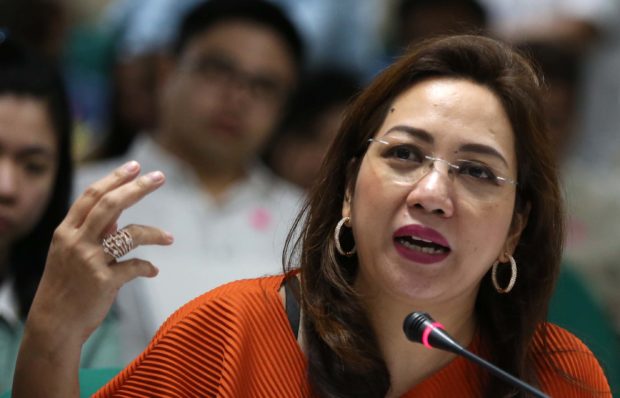MANILA, Philippines — Iloilo Rep. Janette Garin said several claims—including an advice given by Health Secretary Francisco Duque III—have already been debunked in light of the first confirmed case of the novel coronavirus or 2019-nCoV in the country.
Garin, a former health secretary herself, said that the “myth” on keeping throat moist so virus can’t attach to it has been debunked by the Ministry of Health of Singapore.
“Viruses (do) not have teeth like parasites that attach to the mucosa (lining) or organs,” Garin told INQUIRER.net in a text message.
Duque earlier said that the virus would be difficult in “low temperature, low humidity or dry atmosphere” and advised the public to ensure that they are fully hydrated.
“You have to drink a lot of water. Make sure that your throat is moist so that the virus doesn’t attach to it and gets eventually absorbed,” Duque said.
Garin also clarified that no cure has been discovered for the disease, saying that circulating messages about supplements, malunggay capsules and similar products, being promoted is not proven.
“Sayang ang gastos sa mga bagay na hindi naman kailangan (Spending over something not needed is useless). Correct handwashing practices, cough and sneeze etiquette and early health seeking behavior is still paramount,” Garin told reporters.
Further, Garin reiterated that it is N95 masks, and not surgical masks, that prevent the 2019-nCoV.
“N95 masks are to be used by healthcare providers of these patients and those in ground zero and outbreak areas,” Garin said.
“Let’s reserve our N95 masks and PPEs because [if] cases in the Philippines increase and we don’t have supplies anymore, it will be a disaster,” she added.
The health department confirmed on Thursday afternoon that a 38-year-old Chinese tourist has been found infected with the new coronavirus that started in the city of Wuhan, China.
The Chinese woman came from Wuhan and arrived in the Philippines on January 21 before seeking medical attention four days later.
